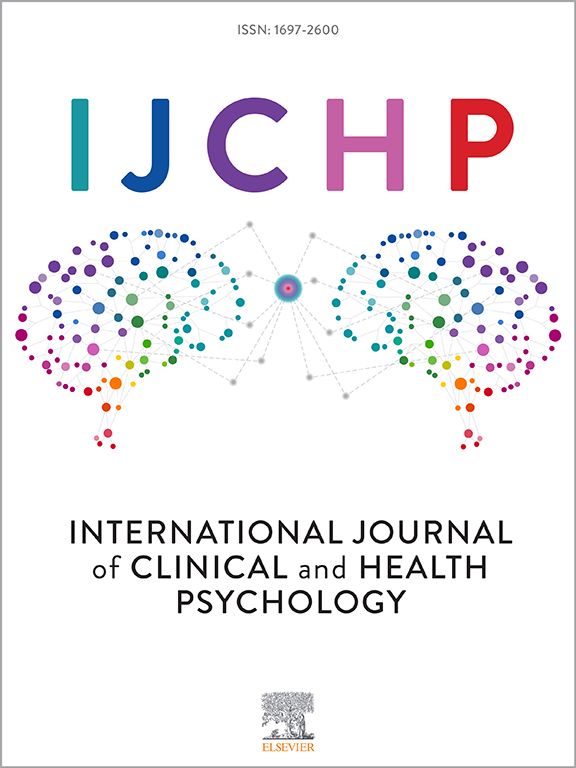The bi-directional influence of social functioning and mental health symptoms during psychological treatment: A cross-lagged analysis in young adults
IF 4.4
1区 心理学
Q1 PSYCHOLOGY, CLINICAL
International Journal of Clinical and Health Psychology
Pub Date : 2025-07-01
DOI:10.1016/j.ijchp.2025.100608
引用次数: 0
Abstract
Young adults (17–25 years old) are at greater risk of experiencing depression or anxiety, and have worse psychological therapy outcomes compared to working-age and older adults. Social functioning and related constructs are valued as outcomes of treatment, and may be particularly important to young adults, who report loneliness and a lack of social support. The relationship between social functioning and mental health during treatment in this group therefore requires further exploration. Four random intercept cross-lagged panel models were fitted to model the session-by-session change in measures of social functioning and mental health symptoms over the course of treatment among patients of NHS talking therapies for anxiety and depression services. A total of 19,600 young adults who had received at least three sessions of psychological therapy were included. There was evidence of a significant bi-directional relationship between social functioning and mental health symptoms between the third and sixth session of treatment, although associations between earlier sessions were less stable. As both mental health symptoms and social functioning were predictive of later symptom severity, further research into how support to improve social functioning could improve treatment outcomes could improve experiences of, and outcomes of treatment. Such support may also account for contextual factors relating to employment or education in this population, as some differences according to employment status emerged.
心理治疗过程中社会功能和心理健康症状的双向影响:一项针对年轻人的交叉滞后分析
与工作年龄和老年人相比,年轻人(17-25岁)患抑郁症或焦虑症的风险更大,心理治疗效果也更差。社会功能和相关结构被视为治疗的结果,对于报告孤独和缺乏社会支持的年轻人来说可能特别重要。因此,这一群体在治疗期间的社会功能与心理健康之间的关系需要进一步探索。四个随机截距交叉滞后面板模型拟合,以模拟在NHS焦虑和抑郁服务谈话疗法患者的治疗过程中,社会功能和心理健康症状测量的逐次变化。总共有19,600名年轻人接受了至少三次心理治疗。有证据表明,在第三次和第六次治疗期间,社会功能和心理健康症状之间存在显著的双向关系,尽管早期治疗期间的关联不太稳定。由于心理健康症状和社会功能都可以预测后来的症状严重程度,因此进一步研究改善社会功能的支持如何改善治疗结果,从而改善治疗的体验和结果。这种支助也可以解释与这一人口的就业或教育有关的环境因素,因为根据就业状况出现了一些差异。
本文章由计算机程序翻译,如有差异,请以英文原文为准。
求助全文
约1分钟内获得全文
求助全文
来源期刊

International Journal of Clinical and Health Psychology
PSYCHOLOGY, CLINICAL-
CiteScore
10.70
自引率
5.70%
发文量
38
审稿时长
33 days
期刊介绍:
The International Journal of Clinical and Health Psychology is dedicated to publishing manuscripts with a strong emphasis on both basic and applied research, encompassing experimental, clinical, and theoretical contributions that advance the fields of Clinical and Health Psychology. With a focus on four core domains—clinical psychology and psychotherapy, psychopathology, health psychology, and clinical neurosciences—the IJCHP seeks to provide a comprehensive platform for scholarly discourse and innovation. The journal accepts Original Articles (empirical studies) and Review Articles. Manuscripts submitted to IJCHP should be original and not previously published or under consideration elsewhere. All signing authors must unanimously agree on the submitted version of the manuscript. By submitting their work, authors agree to transfer their copyrights to the Journal for the duration of the editorial process.
 求助内容:
求助内容: 应助结果提醒方式:
应助结果提醒方式:


